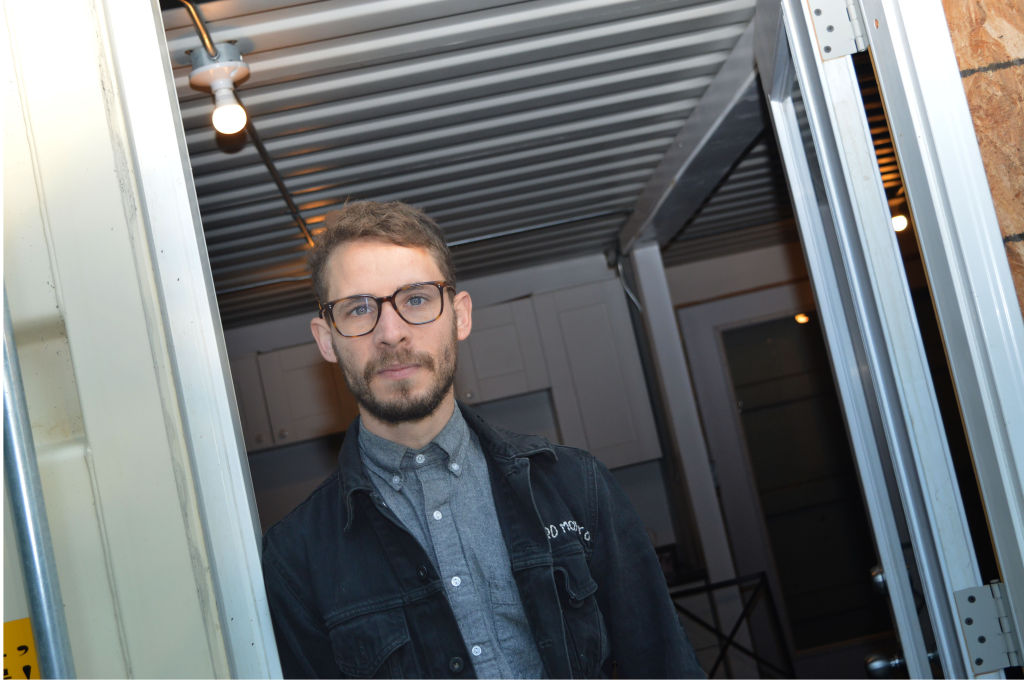
In a wooded area on a plot of land outside Ottawa’s city limits sits Joseph Dupuis’ claim to fame: an off-the-grid home made from shipping containers.
The third-year mechanical engineering student and graduate of the general machinist program earned some celebrity this spring when stories in the Daily Mail (UK) and Buzzfeed about his fully-“green” abode went viral.
He has since been featured in the National Post, CBC, CTV, the Huffington Post and others. But Dupuis has more to offer than repurposed shipping containers rigged to an array of solar panels. It’s about the example set by this endeavour.
“When you work for your comfort level, you appreciate it a whole lot more,” said Dupuis. “You’re not just turning on a switch or turning up the AC, you’re working for it. It’s a gratifying lifestyle and you’re saving a lot of money.”
The cabin itself is made from three standard 20-foot shipping containers which have been modified to create an open-concept interior. It is powered by a two-kilowatt, nine panel solar system and has a wood stove and radiant floor heating system. It is also equipped with a propane-fired hot water tank which supplies the shower, kitchen sink and heating system. Water is trucked in every two months and used only as needed, he trades fire wood with a neighbour.
The cabin has no foundation and can be easily relocated.
Apart from illustrating how to improve one’s carbon footprint while also improving their lot in life, Dupuis sets an example of the importance of networking and the sharing of skills among students, an opportunity he believes is unique to Algonquin.
“It’s about connecting students,” said Dupuis, “if I have a marketing question, there’s countless marketing students at Algonquin.” He believes the college should act as the liaison between programs, offering credit as incentive to network beyond one’s field of study.
“There should be a networking course at the college.”
Dupuis is currently working with the applied research and innovation department on a solar-powered charging station.
“It is very exciting to have my students working on this project with Joe,” said professor Cynthia Ough Underwood, who is overseeing the project in which her students are to develop the code to make the station fully functional. “His determination to see this project come to be is amazing.”
Dupuis has created an algorithm which tracks the sun to maximize the panel’s effectiveness. Using GPS coordinates, his design knows exactly where the sun is at all times. While its proposed use is an on-site charging station for electric vehicles at the college, such technology could revolutionize how solar energy is used, making it more accessible for end users who don’t possess the land required for a full system.
The proposed solar charging unit is to be housed in a shipping container.


